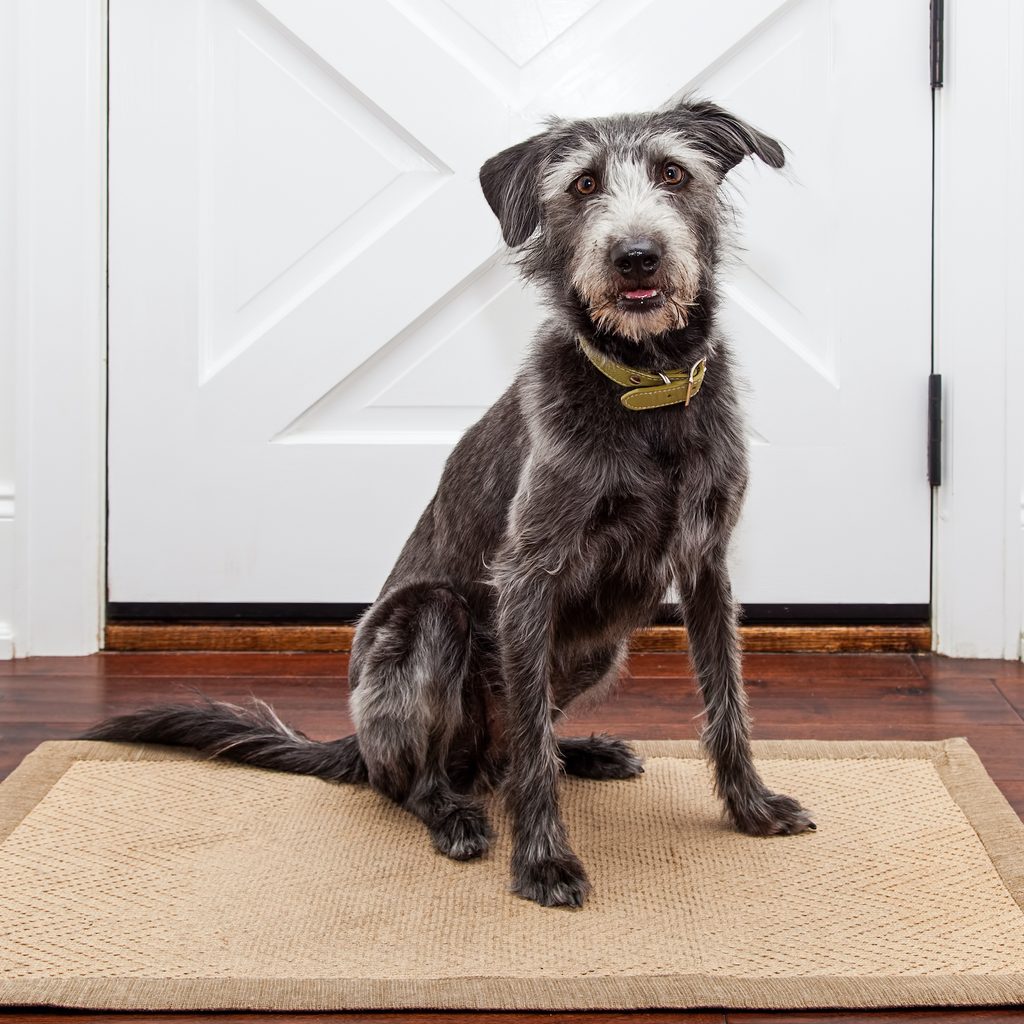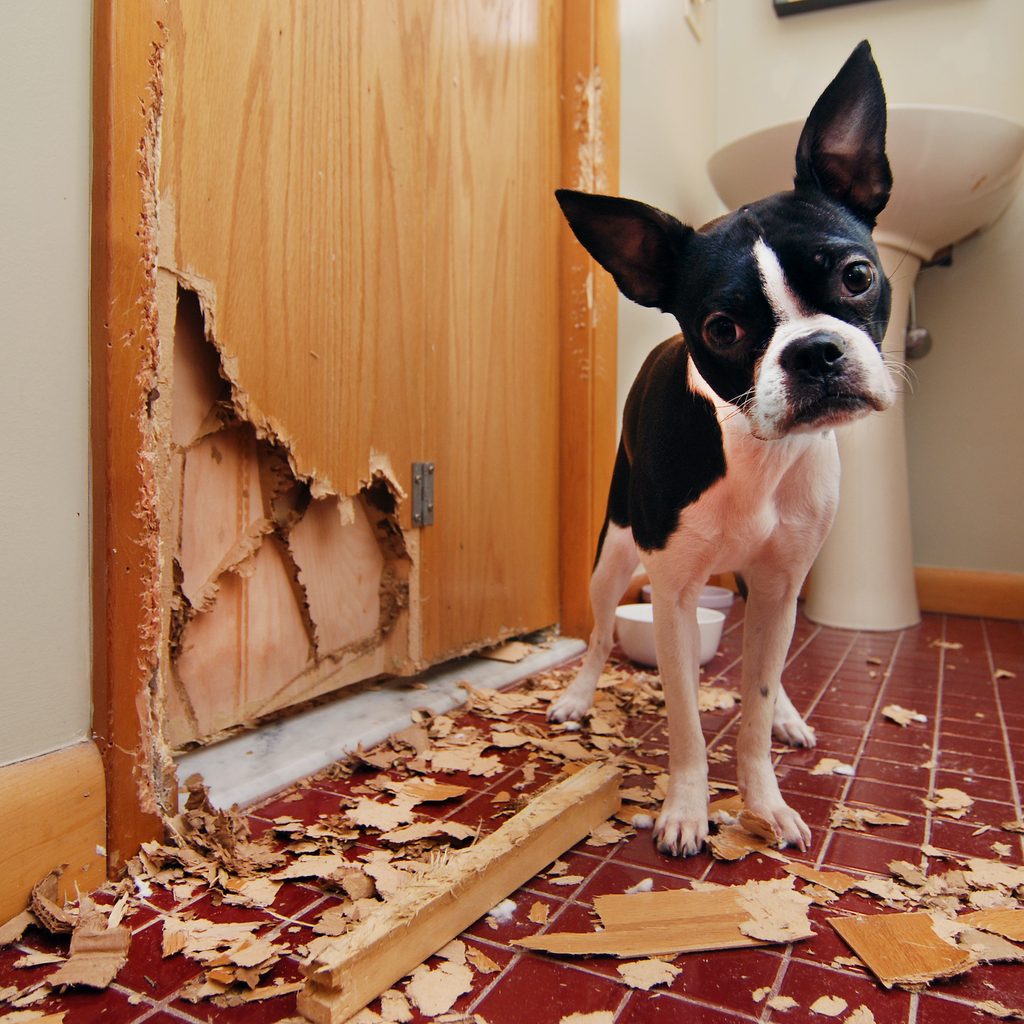Spending extra time at home with our pets has been the best — and possibly the only good— part of the pandemic, but it’s relieving to see the world begin to return to normalcy as COVID cases drop. Since many of us are returning to the office, though, our pets are getting used to being alone as well — some better than others. Dog separation anxiety is no joke, but it can be worked through with the right techniques and mindset.
It’s tough to see your fur baby in distress — we know — but it will help your dog immensely to learn how to be by herself. It won’t be the easiest process, but with these vet- and trainer-approved tips, you’ll be well on your way to showing your pup that being alone is nothing to worry about.

Symptoms of dog separation anxiety
Just like people, dogs express their emotions and fears in different ways. It may look like lethargy, naughtiness, or plain ol’ craziness — these are a few ways you may experience dog separation anxiety, courtesy of the American Society for the Prevention of Cruelty to Animals (ASPCA) and the American Kennel Club (AKC):
- Accidents in the house.
- Excessive barking and howling.
- Eating excrement.
- Chewing and destructiveness.
- Pacing.
- Escaping.
- Depression.
- Panting.
- Drooling.
Although you may witness some of these behaviors before or after you leave the house, it’s more likely that your dog will act out while she’s alone at home. Setting up a pet camera can help you identify what exactly your dog is doing while you’re gone, but it’s up to you to help your pooch feel comfier by herself.
Why do dogs experience separation anxiety?
Although some pups are naturally more anxious than others, there are a few documented reasons why dogs develop separation anxiety. The ASPCA notes that this problem is more prevalent in rescued pups, which leads many to believe that losing someone important, whether canine or human, can be a contributing factor.
Because dogs are creatures of habit, changes in care, environment, or routine can disrupt their well-being. Even the addition of a family member can be enough to cause uncertainty and worry. An owner returning to work, even part-time, certainly fits the bill of situations that can worry a pup.
It’s also important to ensure your dog isn’t dealing with any medical or behavioral issues that are contributing to her symptoms. Medications, for example, can cause side effects such as frequent urination, panting, and other changes. Contacting your trusted veterinarian is a great way to rule out any new or preexisting conditions.
How to help with dog separation anxiety
It’s important to remember what you’re working toward when managing your pup’s worries. Tufts School of Veterinary Medicine states on its website that the goal of treating separation anxiety is not to reduce symptoms but to get to the root cause of their anxiety by teaching them to tolerate — and maybe even like — being alone.
Small changes for big results
In mild or moderate situations, a few routine changes can go a long way. Tufts recommends both walking and feeding your dog before you leave for work, as aerobic exercise can be a fantastic stress reliever. When your pup’s stomach is full, she knows her needs are met and may even fall into a nice postmeal nap, making things a lot easier for everyone.
You can also help your furry friend distract herself while you’re away with some long-lasting treats or fun toys. Puzzle toys and games for dogs are a great way to keep canine brains stimulated (via AKC). They can even tire out your pup! Better still, have some extra-special treats and toys that your dog gets only when you leave for work. You never know, she may even look forward to it.
Desensitization and practice
The way you act as you leave and return home can show your dog a lot about how she should react. If you make a big deal out of coming back, hugging, and kissing your pup as if you haven’t seen her in ages, your pooch may interpret your return as a big deal as well. Acting calm and confident instead will leave your dog reassured, especially since she looks to you for care and guidance.
If your dog needs more structure to reduce her separation anxiety, the AKC recommends the desensitization method. Basically, you’re implementing the above tips in a calm practice session, leaving your dog alone only for a short time. Each time you practice, slowly increase the amount of time your pup is alone. Before you know it, a few hours will feel like nothing.
If you could use extra help, a certified canine behavior expert or trainer can guide you through this process, too, so don’t panic if you feel a little lost in the fog. There are also many doggy daycare and kennel options if you decide that your pooch is better off with supervision, so don’t put too much pressure on yourself (or your pup) to feel calmer right away.
Here’s the good news: Separation anxiety is a highly treatable and even reversible problem that your dog will probably overcome. The way you support and train your pup will go a long way in helping her build confidence while alone, so don’t underestimate the power of patience, practice, and a little love.





